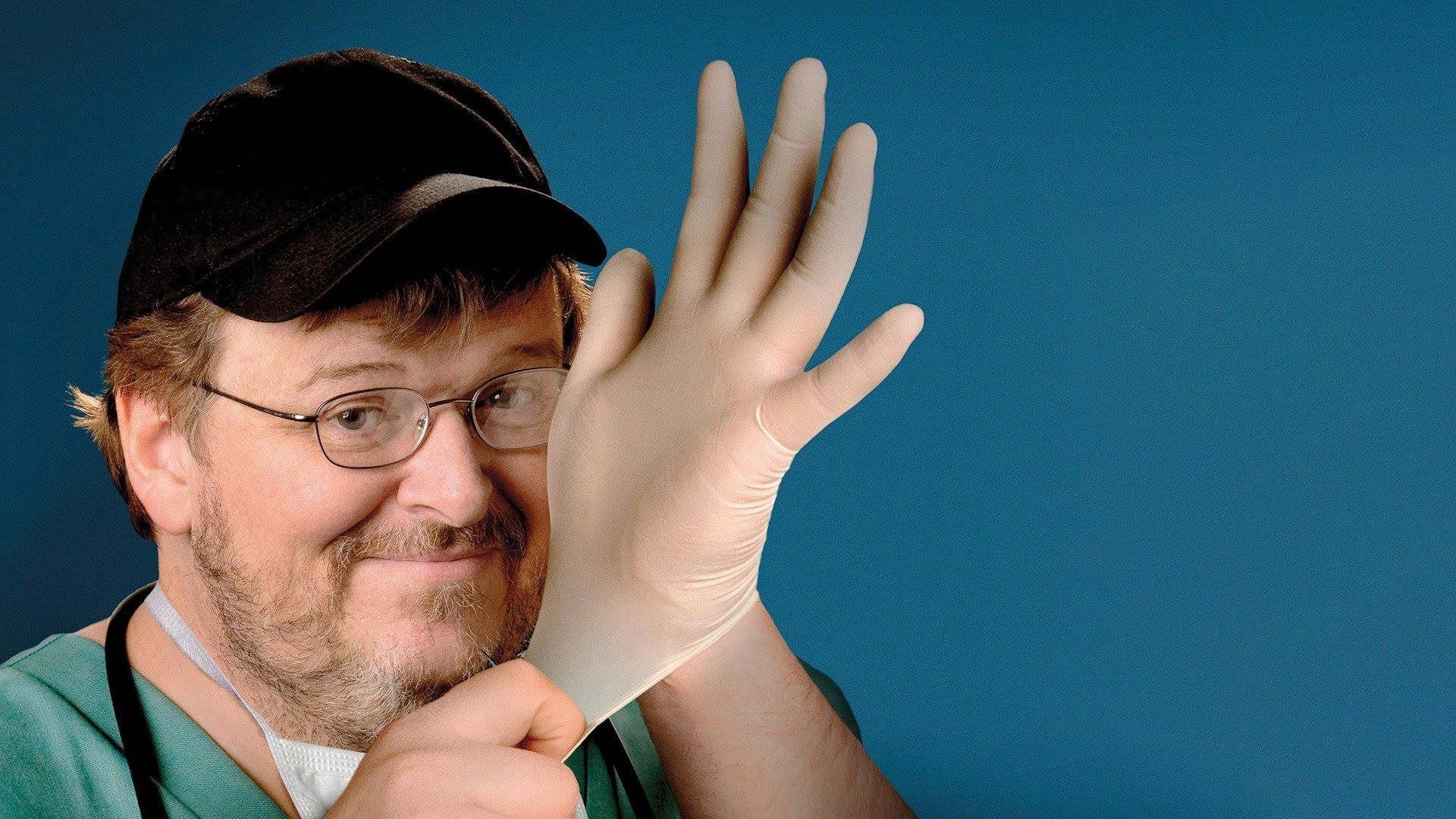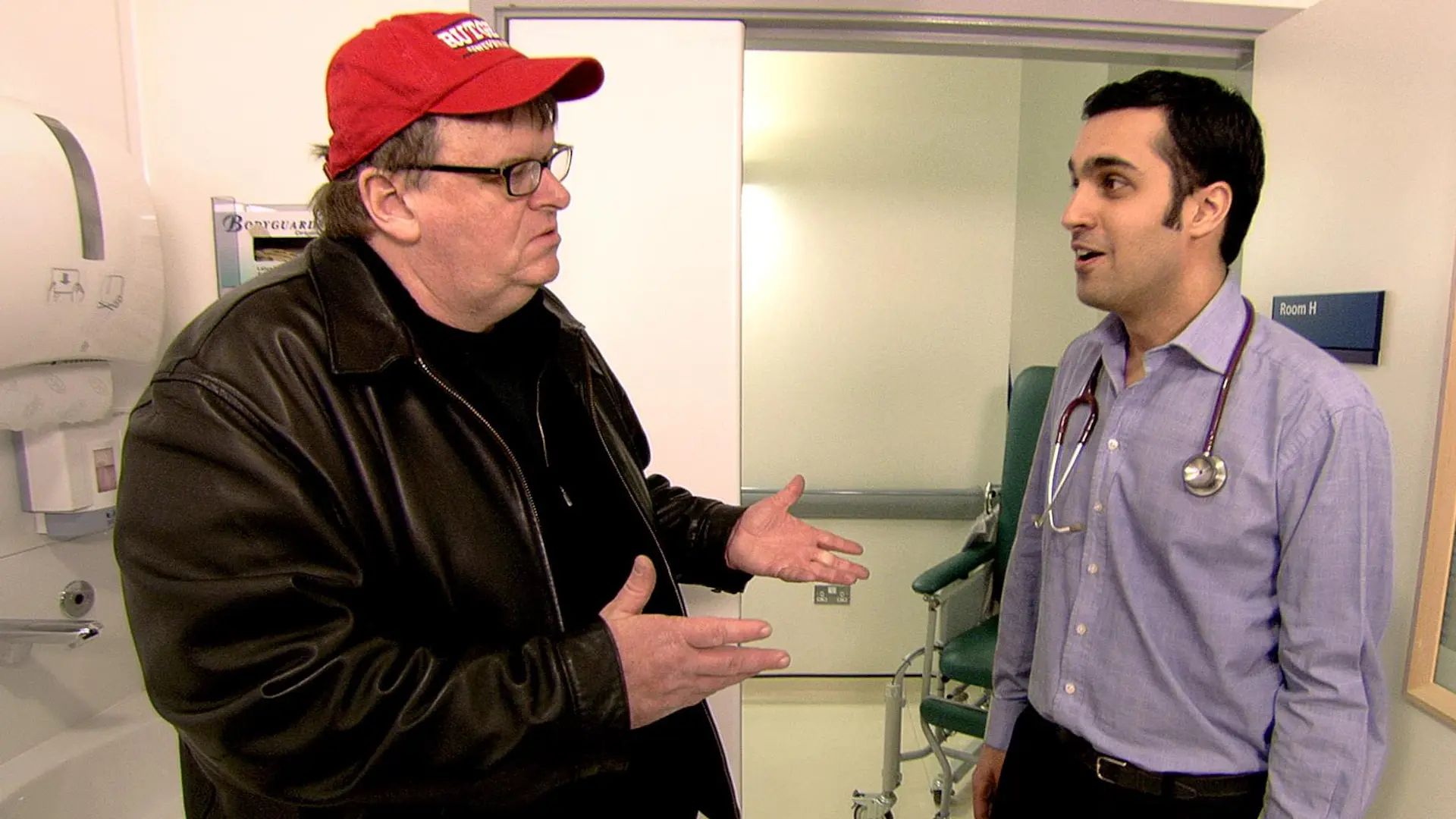
As someone who has personally experienced the struggle of navigating the US healthcare system, I can wholeheartedly endorse Michael Moore’s documentary “Sicko.” This film is not just a piece of art, but a mirror reflecting the harsh realities faced by millions of Americans every day.
Michael Moore is known worldwide as one of the most influential (and controversial) documentary filmmakers, and in 2007 he embarked on a mission to scrutinize the United States healthcare system. His film titled “Sicko” consisted of interviews with individuals affected by the system, as well as its employees, highlighting the detrimental effects that the industry inflicts daily.
Given the circumstances, it’s not unexpected that, as reported by journalist Ken Klippenstein, the film Sicko appears in the purported handwritten manifesto of Luigi Mangione, the main suspect in the murder of United Healthcare CEO Brian Thompson. In response to these events, Michael Moore has published a statement and made the entire documentary available on YouTube – for free, without any commercial interruptions or advertisements.
It’s hard to fathom that Moore’s film was made over twenty years ago, considering the very same healthcare system issues he exposed then continue to plague millions of Americans now. His documentary was blunt and critical, reflecting Moore’s, as well as Mangione’s and many other American citizens’, discontent with how things are handled. Since it’s now free for everyone to watch, maybe it’s high time the American people realize just how poorly they have been treated.
Honesty About the US Healthcare System
Michael Moore’s film offers an unsparing portrayal of how the American healthcare system functions. It features a diverse array of individuals who have suffered at the hands of numerous health corporations. According to Moore, these entities prioritize profits over patient care. In addition to interviews with victims of this system, Moore engages professionals within the healthcare industry, including those responsible for denying insurance claims. As a former employee from the film Sicko states:
The very definition of a good medical director was someone who can save the company a lot of money.
One of the most eye-opening interviewees is a former healthcare employee who speaks about how some medical directors were given bonuses if they managed to reject a certain number of claims and thereby save the insurance company money. The corruption inherent within the system is brought right to the fore, and some of the stories told by interviewees are beyond tragic. It’s painful to watch people having to describe how difficult it was when someone close to them died because they couldn’t afford healthcare. Moore’s frank approach to documentary filmmaking makes Sicko an emotionally straining study of the health industry.
Mangione & Moore Point to Other Countries
A significant part of the movie “Sicko” focuses on Moore’s examination of the U.S. insurance-driven healthcare system versus those of countries like Canada, the UK, and Cuba (and others). By interviewing residents and healthcare professionals from these nations, Moore emphasizes the stark contrast between the financial burden faced by Americans when it comes to health care and the experiences of people who don’t have to pay anything out-of-pocket for their medical care. For instance, in the UK, prescription drugs are priced uniformly and many patients aren’t required to pay for them at all.
It’s shocking to discover how affordable healthcare can be in publicly-funded systems compared to what many Americans pay for basic care. The fact that travel costs to and from hospitals aren’t covered in some cases is infuriating when contrasted with other countries where such expenses are reimbursed. It’s no wonder that Mangione, who reportedly grappled with his own health care challenges, claimed that this documentary exposed the “corruption and greed” at the core of America’s health insurance issues. Notably, Sicko was even nominated for an Oscar.
Michael Moore Talks Directly to Americans



In “Sicko,” Michael Moore doesn’t shy away from expressing his views, instead making them crystal clear throughout the film. His documentaries are known for their straightforward approach, but this one makes his perspective even more evident. He openly shares his opinions with the audience multiple times during the two-hour run time, and there is no attempt to soften the message. The individuals Moore interviews have been thoughtfully chosen to reinforce his arguments, making “Sicko” a thoroughly researched and intelligent analysis of the U.S. healthcare system – although it should be noted that the film presents a highly biased viewpoint.
In a single-perspective presentation, Michael Moore’s documentary “Sicko” retains its high quality and integrity. Instead of diluting its impact, this singular viewpoint lends authenticity to the film, as it reflects Moore’s genuine convictions shared by millions across America. The opening monologue establishes that this isn’t merely a story about an individual or the 50 million uninsured; rather, it encompasses the broader picture of the 250 million Americans with health insurance. Essentially, “Sicko” serves as a cautionary tale, using the screen as his canvas to paint a vivid image of systemic corruption and indifference, aiming to awaken an audience to the truth Moore passionately seeks to convey.
Michael Moore’s SiCKO is available to view now, for free, on YouTube. Watch it below:
Read More
- Brent Oil Forecast
- USD MXN PREDICTION
- Silver Rate Forecast
- 10 Most Anticipated Anime of 2025
- USD JPY PREDICTION
- Pi Network (PI) Price Prediction for 2025
- USD CNY PREDICTION
- How to Watch 2025 NBA Draft Live Online Without Cable
- Gold Rate Forecast
- EUR CNY PREDICTION
2024-12-28 07:01